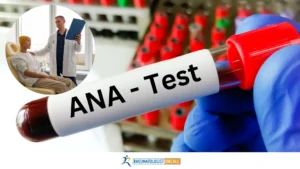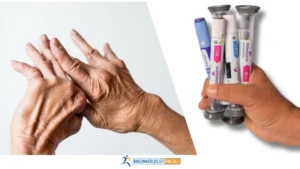SHARE
If your ANA (antinuclear test) is positive, the chances are that your doctor will refer you to a rheumatologist. Suppose you have arthritis or were recently diagnosed with an autoimmune disease like Lupus, Rheumatoid Arthritis or Sjogren’s Syndrome. In that case, you might also need to see a rheumatologist. If you move to a new city, you might also be looking for a new physician.
The question is how to find the best rheumatologist near you.
How should you choose the best rheumatologist?
Most patients will ask their PCP to direct them to their trusted physician. However, most patients will diligently research that doctor to learn more about others’ experiences. The best resource remains a search on google and the reviews of other patients.
Five essential criteria that you should look for
1.” The doctor took time to address all of my questions.”
When you deal with a new concern, like a test that can lead to an autoimmune disease diagnosis, you will have many questions about the possible disease, other tests that might be needed to confirm a diagnosis, and even treatment options. Instead of trying to find your answers on the internet, you should have the time and the expert opinion. If you are seen in a traditional practice, the most time you can spend with a physician is about 15 minutes. The physician mostly spends this time getting your medical history, and very little time is spent answering your questions. In our practice, Rheumatologist OnCall, the physician spends one hour or more to get the medical history, develop a plan, and answer all your questions.
2.” The doctor was easy to get in touch with when I had needs/concerns.”
The first visit with a rheumatologist physician can be very stressful. Dealing with a chronic disease, especially an autoimmune one, is frightening for many. Even if you get most of your questions answered, you will have more questions or concerns after getting home. You have the time to process the information received, and more concerns will arise. It is essential to send a message or a phone call to your doctor. It is even more critical to receive the answer promptly. In our practice, patients communicate directly with the physician and get their answers within hours. Or let’s say you have a flare-up of your rheumatoid arthritis or gout. It is important to be seen when you need it the most. Not in 3 or 6 months. In a traditional practice, patients will call the office and most likely be directed to the emergency room, as the physician is unavailable to see and treat them. That doesn’t happen in our practice, as the physician will either offer you a same-day appointment or direct you on what to do at home to get better.
3.” The doctor gave me choices and worked to find a treatment that was comfortable to me.”
You need time to process this new information when you get diagnosed with an autoimmune disease like Lupus or Rheumatoid arthritis. You may not be ready to jump on a treatment in the first visit with your physician, but you may need time to understand the risk and benefits of a treatment. However, most physicians focus on the traditional therapies they are comfortable prescribing. Most patients seek a personalized approach that suits their needs and comfort.
4. ” The doctor and his/ her staff seemed to care about me.”
A physician’s empathy is essential in building long-term relationships with patients. Physicians and their staff should work hand in hand in helping the patient with an autoimmune disease, from navigating the medical system to offering solutions to meet patients’ needs. Physician’s staff should be the bridge in the communications with the physician, and they should facilitate the communication, not be a wall to protect the physician.
5.”The doctor did offer me an integrative and personalized treatment plan”.
The traditional medicine of our days focuses more on diagnostic tests, labeling patients with a “diagnosis,” and prescribing treatment.
Is that enough? Unfortunately, it is not.
If that is enough, why are only some patients responding to treatments and others are not?
It is like treating a tree; you expect the whole forest to heal.
Dr. Diana Girnita treats the whole person and not only your disease.
Understanding the patient is critical in formulating a plan that will include lifestyle changes like nutrition, stress management, sleep management, and exercise. In our practice, we treat people and not diseases. Dr. Girnita has additional training in nutrition from Stanford University, and mindfulness from the University of Massachusetts. She even designed a food and lifestyle pyramid to help her patients with inflammatory diseases like rheumatoid arthritis. Rheumatologist OnCall partnered with a specialized physical therapist to develop a complete exercise plan tailored to arthritis patients’ needs.
Your medical journey in understanding and managing an autoimmune disease should not be complicated.
Finding the best rheumatologist near you might sometimes be difficult, but you can access top experts online with just a few clicks. Rheumatologist OnCall is a practice that strives to give you access to a top expert rheumatologist in just a few days, an integrative and personalized approach that will always fit your needs, time, and easy access when you need it the most and offer you affordable and transparent pricing.














